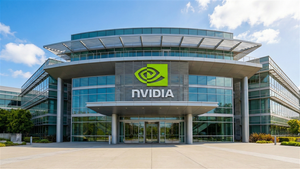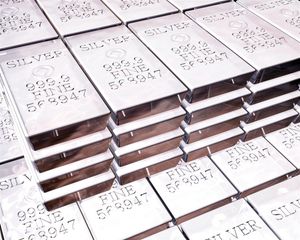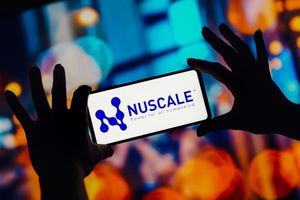Accelsius Unveils Two-Phase Cooling Reference Design, Demonstrating Billions in Potential Energy Savings
- The Accelsius study, with analysis by Jacobs, indicates that two-phase direct-to-chip liquid cooling may offer up to 35% lower OpEx and 12% lower TCO compared to single-phase approaches
- Adoption of two-phase cooling across planned and under-construction Austin–San Antonio data centers could save up to $50M annually in electricity costs, enough to power 330,000 homes
- First industry-accessible two-phase cooling reference design illustrates scalability, practicality, and readiness for AI-era workloads
Accelsius, a leader in two-phase, direct-to-chip liquid cooling technology, today announced the release of the first industry-accessible two-phase cooling reference design, developed in collaboration with Jacobs. The study highlights significant cost and energy savings potential for data center operators.
The scale of potential impact could be substantial: under the study’s assumptions, converting all planned and under-construction data centers in the Austin–San Antonio market alone could save more than $50 million annually—enough energy to power an estimated 330,000 homes each year. Applied across North America’s 52.4 GW data center pipeline, the potential savings could approach $10 billion annually.
“The rising power demands of data centers make efficient solutions imperative,” said Josh Claman, CEO of Accelsius. “By releasing this reference design, we’re stepping up to lead the way—accelerating the adoption of cooling technologies that cut energy use while enabling higher compute density.”
New Study Illustrates Efficiency Gains
The data center concept study seeks to address one of the data center industry’s pressing challenges: cooling can represent up to 40% of total facility energy consumption when using traditional air-cooling systems.
“As liquid cooling moves from concept to reality, our clients need credible data and reference concepts to inform their decisions,” said Sam Larsen, Vice President, Advanced Manufacturing at Jacobs. “This study gave us the chance to explore two-phase cooling at scale and assess the potential efficiency improvements it can deliver.”
The study compared two-phase direct-to-chip cooling against single-phase systems in a 10MW reference design modeled across multiple climate zones. Under the study’s assumptions, findings showed that two-phase cooling has comparable CapEx to single-phase and could deliver up to 35% lower annual OpEx and 12% lower five-year TCO. In addition, the analysis estimated that, if an end user sought to maximize available power based on the single-phase reference design, the two-phase design could enable operators to run 5% more GPUs within the same power envelope—a critical advantage for today’s AI- and GPU-intensive workloads.
Pre-Integration Simplifies Adoption
A key finding of the study addresses common industry misconceptions about two-phase cooling complexity and cost. The reference data center concept demonstrates that facilities already planning single-phase direct-chip cooling could transition to two-phase systems without requiring complete facility redesigns.
Unlike experimental approaches, the two-phase system integrates easily with existing facility water infrastructure, reducing barriers to adoption. The integrated overhead manifold design in Accelsius’ MR250 system eliminates the need for a separate Technology Cooling Systems (TCS) or secondary loop, reducing both cost and complexity compared to traditional approaches.
Key technical advantages illustrated by the study include:
- Superior Thermal Performance: Two-phase systems can operate effectively with facility water temperatures up to 8°C higher than competing solutions, broadening the conditions for chiller-less operation through enhanced free cooling potential.
- Enhanced Infrastructure Efficiency: The reference concept shows that two-phase cooling requires less heat rejection infrastructure —using 12 fans per chiller compared to 16 fans needed for single-phase systems, translating to more than 35% OpEx savings at the system level.
- Zero Active Water Consumption: Two-phase cooling systems in the study required zero active water consumption for cooling processes, with water use limited to facility loop maintenance—a critical consideration as data centers face increasing scrutiny over water consumption.
Strategic Transparency Positions Industry Leadership
Accelsius is making key study takeaways publicly available, while full details of the reference design can be requested.
The study represents a third-party analysis by Jacobs, with mechanical system data incorporated from multiple independent sources to inform the performance and cost estimates.
Alignment with AI Infrastructure Growth
These findings come as AI infrastructure demands drive data center operators toward higher rack densities that traditional cooling systems increasingly cannot effectively support. The reference design provides operators with potential pathways to meet growing compute demands while maintaining operational efficiency and sustainability goals.
With capabilities extending to next-generation requirements, the two-phase approach may help data center operators scale their infrastructure for future AI workloads while reducing operational costs and environmental impact.
Accelsius is providing the industry with actionable insights to accelerate the wider adoption of advanced cooling at scale. To learn more about Accelsius’ NeuCool two-phase direct-to-chip liquid cooling solution, email info@accelsius.com or visit accelsius.com.
About Accelsius
Founded by Innventure, Inc. (NASDAQ: INV), Accelsius empowers data center and edge operators to achieve their business, financial and sustainability goals through advanced cooling solutions. The proprietary NeuCool platform provides best-in-class thermal efficiencies through a safe, two-phase liquid cooling system that scales from single racks to entire data centers. For more information, visit accelsius.com or follow us on LinkedIn.
View source version on businesswire.com: https://www.businesswire.com/news/home/20250925255544/en/
Contacts
Media Contact
Treble
McKenzie Covell
accelsius@treblepr.com
More News
View More




Recent Quotes
View More
Quotes delayed at least 20 minutes.
By accessing this page, you agree to the Privacy Policy and Terms Of Service.